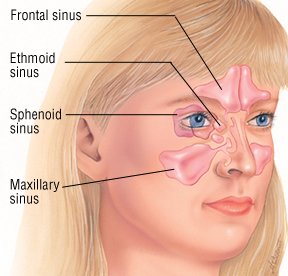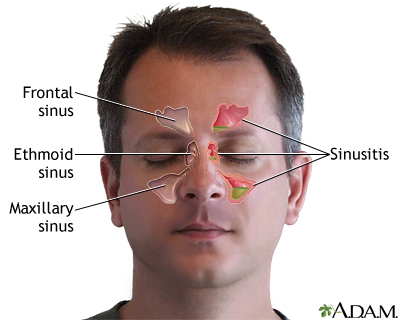
In the United States, more than 37 million people experience the symptoms of sinusitis each year. It is the most common ailment in the country, surpassing diseases like heart disease, asthma, and chronic back pain. In addition to its physical impact, sinusitis can also affect the person’s psychological well-being. The human body has several sinuses, or air spaces in the head and face. They are lined with mucus and contain tiny hairs called cilia, which trap bacteria and push out irritants.
As sinuses are located deep in the bones, the blood supply to them is limited. Therefore, the use of antibiotics for treatment is generally prescribed for three to 28 days, depending on the severity of the infection. During this period, the patient should not experience any significant improvements. During this period, the patient should seek medical attention if the pain is persistent. In addition, antibiotics are also prone to developing resistance to antimicrobial agents due to their overuse.
The main symptoms of sinusitis include nasal congestion, runny nose, and green or yellow nasal discharge. These symptoms are usually caused by inflammation and swelling of the sinuses. Some patients experience decreased sense of taste, which can also be caused by sinusitis. These signs indicate a bacterial infection. If the patient has chronic sinusitis, he should seek medical help as soon as possible.
In some cases, the infection can cause inflammation of the sinus membrane. In such cases, the sinus drainage may become blocked. The resulting liquid may also contain fungi or bacteria. In this case, the patient will need antibiotics and surgery. In most cases, a viral infection is the cause of sinusitis symptoms. The patient should seek medical attention and advice from the health website sarjana.co.id
if symptoms persist for a reasonable period of time. Symptoms of the disease should be clearly identified and treated with anti-inflammatory drugs.

Once diagnosed, treatment options will depend on the type of infection. Acute sinusitis may require antibiotics. However, if a patient suffers from chronic sinusitis, the doctor may consider endoscopic sinus surgery as a last resort. However, surgery is rarely an option in children and should be discussed with your pediatrician. But even if the ENT doctor suspects a viral infection, he should consult a specialist as soon as possible.
If you have chronic sinusitis, you may want to avoid hanging out with people who have the condition. If you are experiencing pain, over-the-counter pain relievers can help relieve it. You can also use a humidifier or warm compress. This will help relieve discomfort caused by the infection. At the same time, you should avoid people who have this disease. There are a number of natural ways to treat this condition.
In severe cases of sinusitis, antibiotics may be necessary. Antibiotics can be effective for a short time. For severe infections, an antibiotic may need to be taken for a few weeks. For chronic sinusitis, surgery should be considered only if the symptoms are not resolving within one week. You will likely need to visit your doctor until you can find a permanent solution. A long-term course of medication is often required, though.
Treatment for sinusitis can include the use of decongestants and antibiotics. If the condition has a bacterial origin, a doctor may prescribe a course of antibiotics to treat the infection. Other treatments include modifying the patient’s lifestyle and changing medications. If the condition has an underlying medical cause, a doctor may suggest an antibiotic to treat it. When the symptoms persist, a sinus surgeon will perform a procedure.
In Germany, the treatment of sinusitis is not limited to medications. It can also include surgical procedures. If you have a limited amount of air, a surgery to open up the blocked sinus passages can help relieve the symptoms. In the U.S., chronic sinusitis is the most common health problem in the country. If you have an acute sinus infection, you’re likely suffering from a chronic one. It can last from a week to more than 12 months, depending on its severity.
Acute sinusitis can be fatal. If antibiotics are not effective, the patient may develop orbital extension. CT scans should be performed to determine the extent of the infection. If the symptoms persist, surgeons should consider the option of performing surgery. A CT scan can also detect any potential intracranial complications. The most common complication is meningitis, which can lead to epidural abscess.